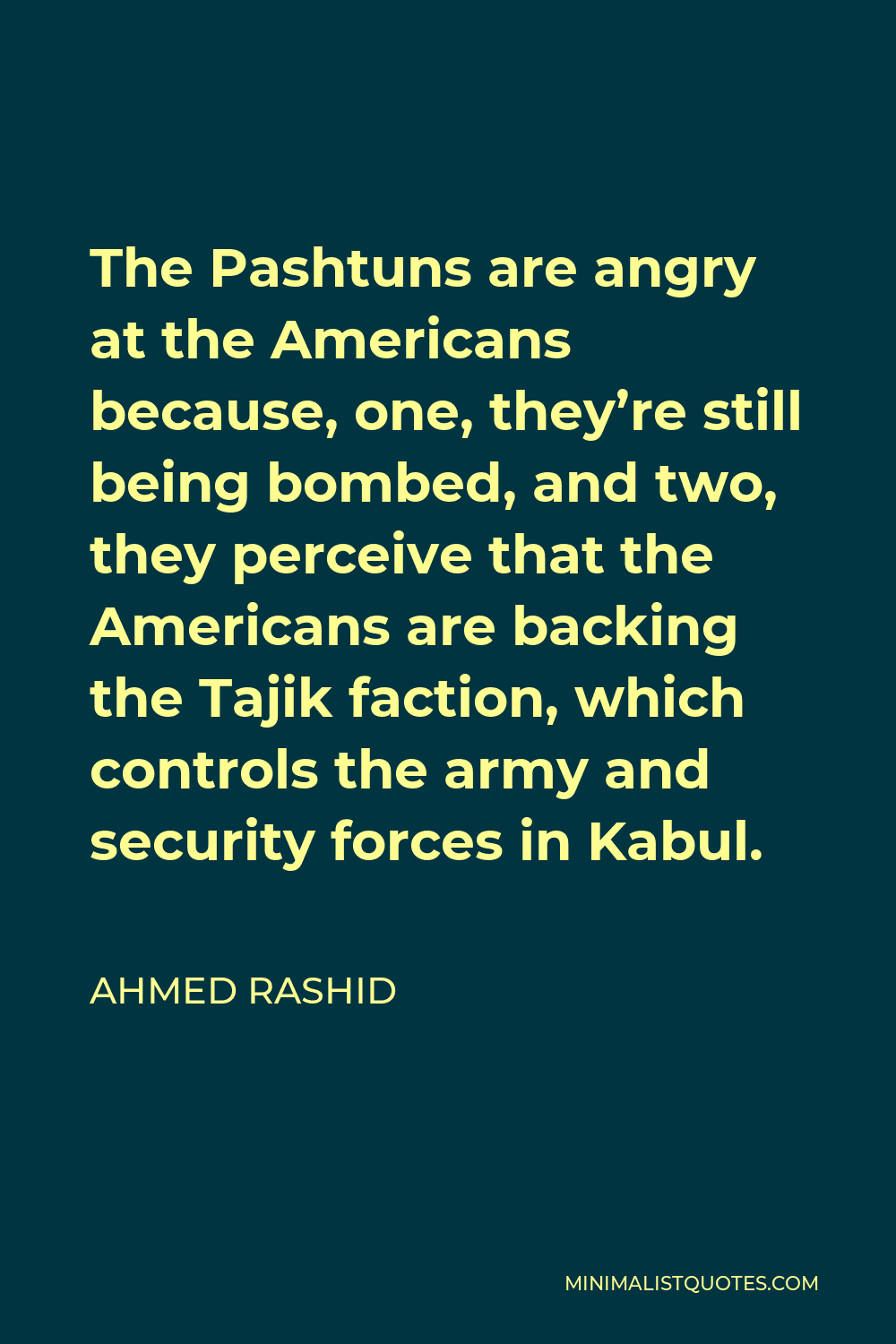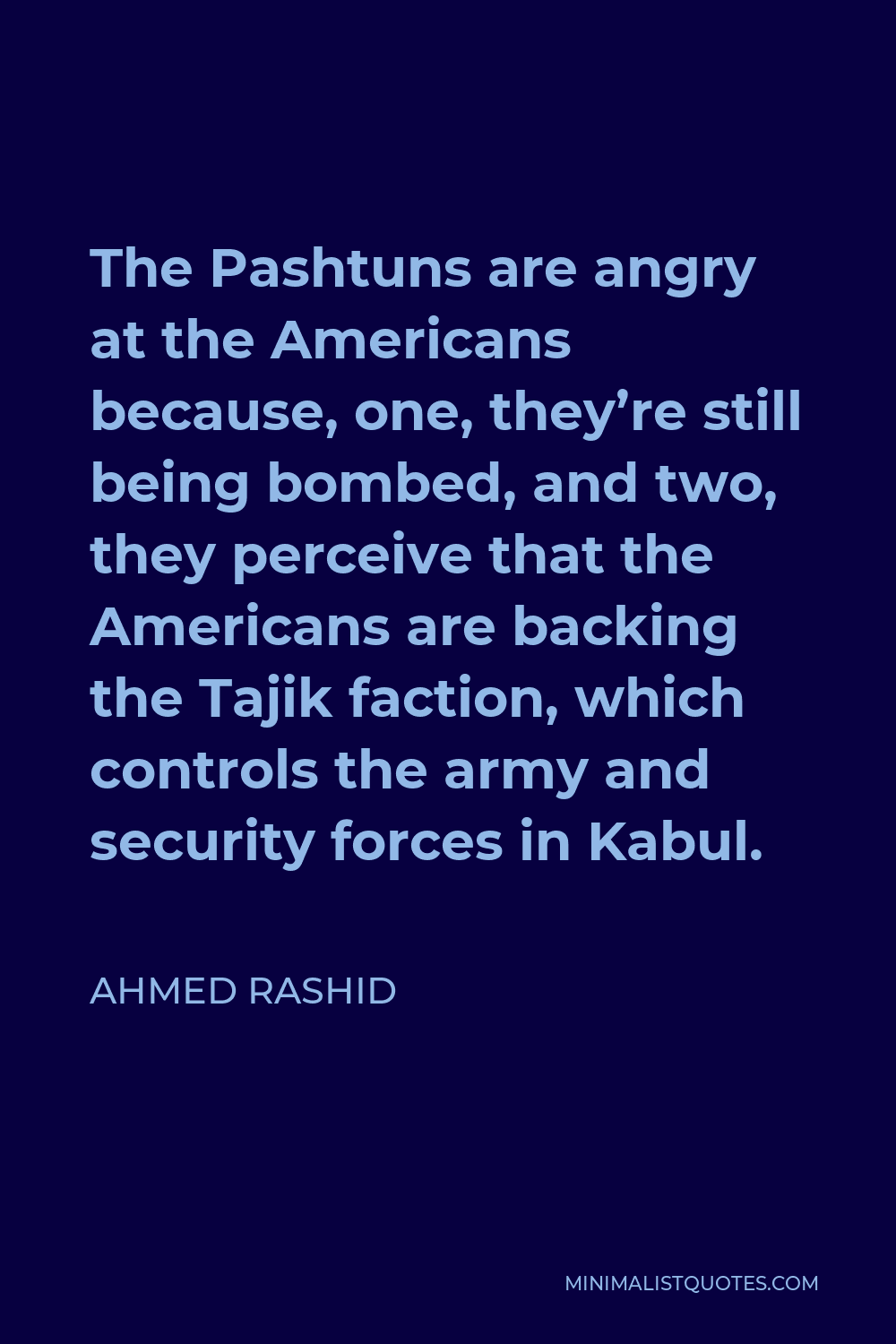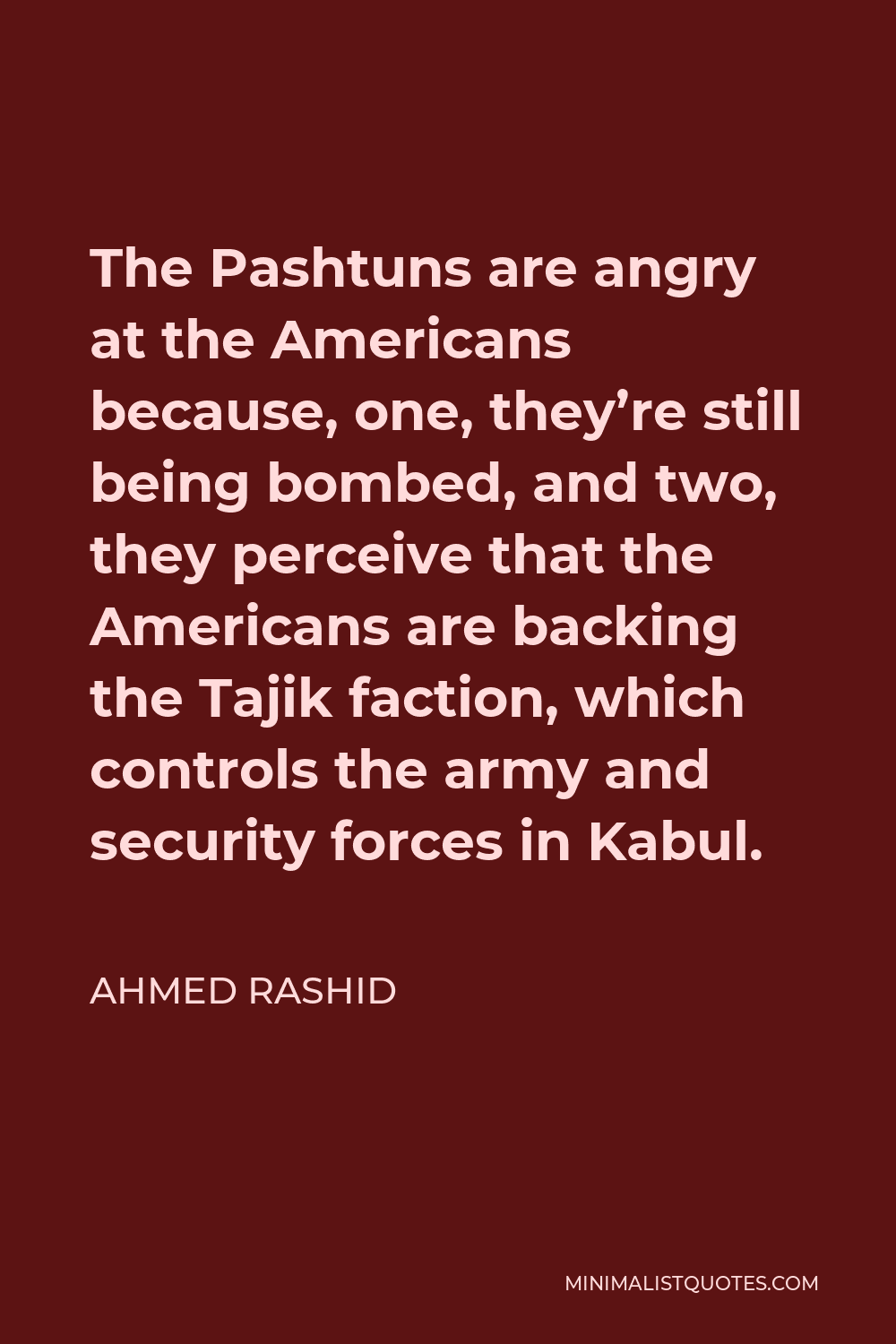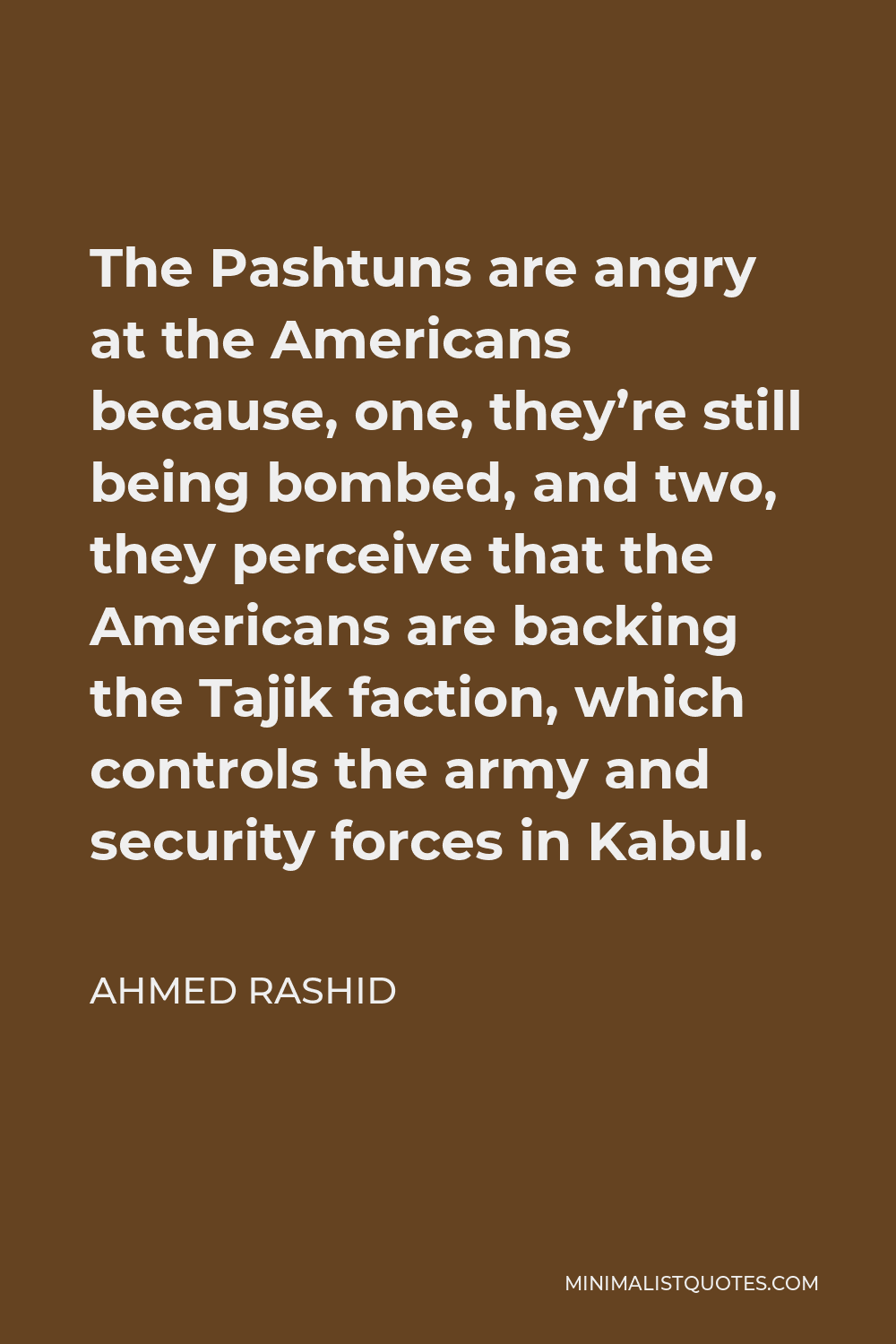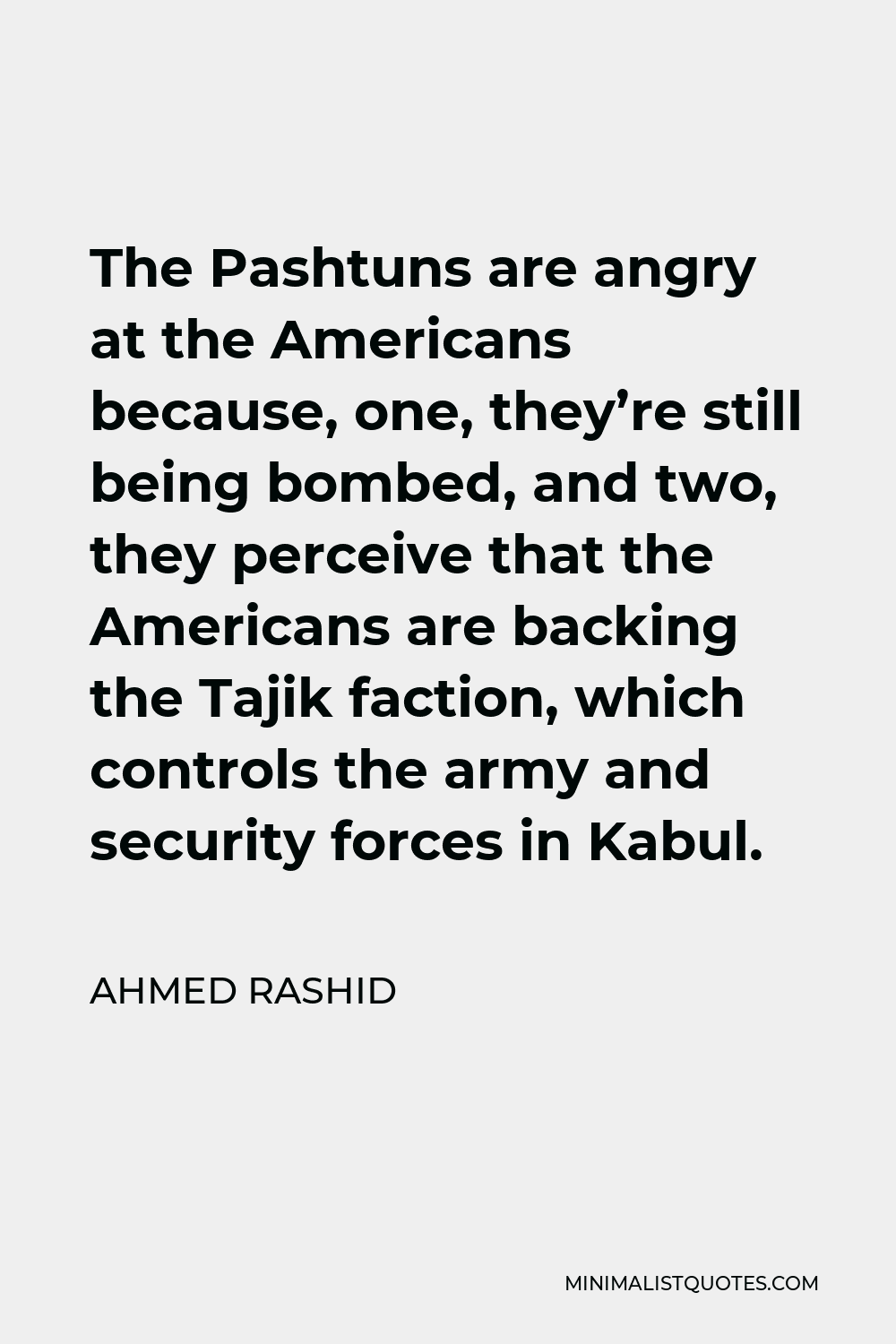In these extremist groups, which then provided them with safe houses, cars, and not just in the border areas but also in the cities. Rooting out Al Qaeda in Pakistan now is where the main battle is being fought.
AHMED RASHIDThe Pashtuns are angry at the Americans because, one, they’re still being bombed, and two, they perceive that the Americans are backing the Tajik faction, which controls the army and security forces in Kabul.
More Ahmed Rashid Quotes
-





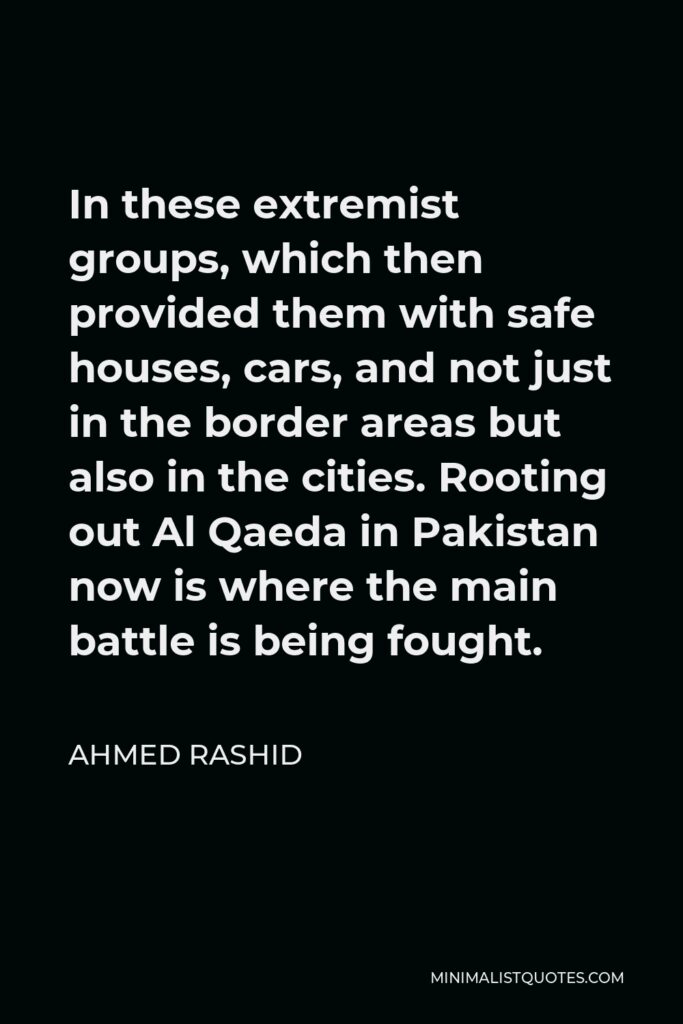

-





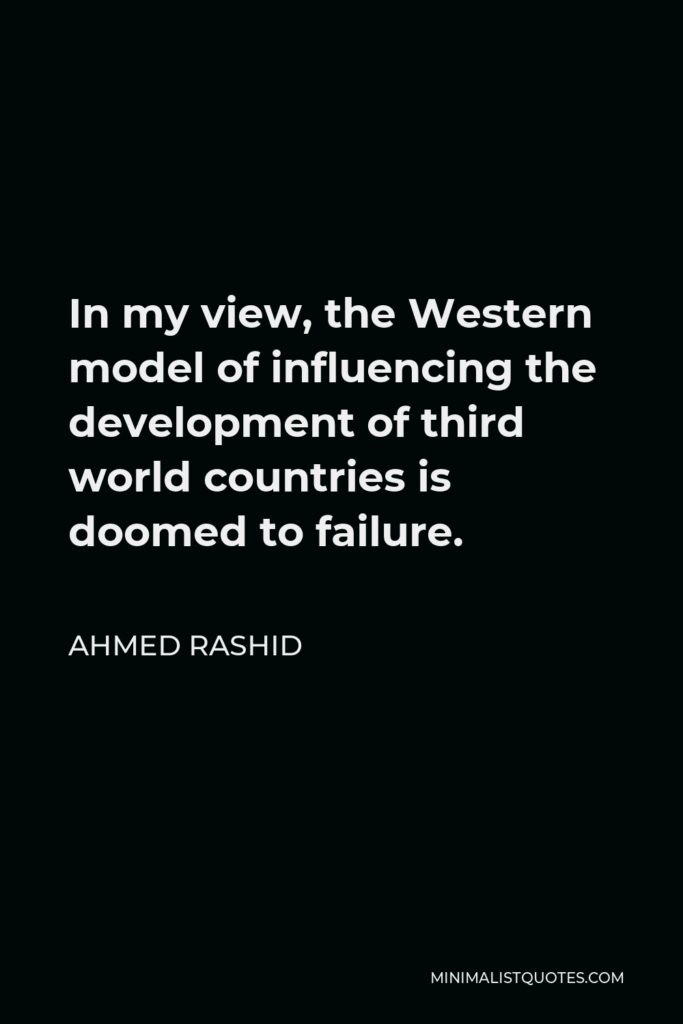

In my view, the Western model of influencing the development of third world countries is doomed to failure.
AHMED RASHID -





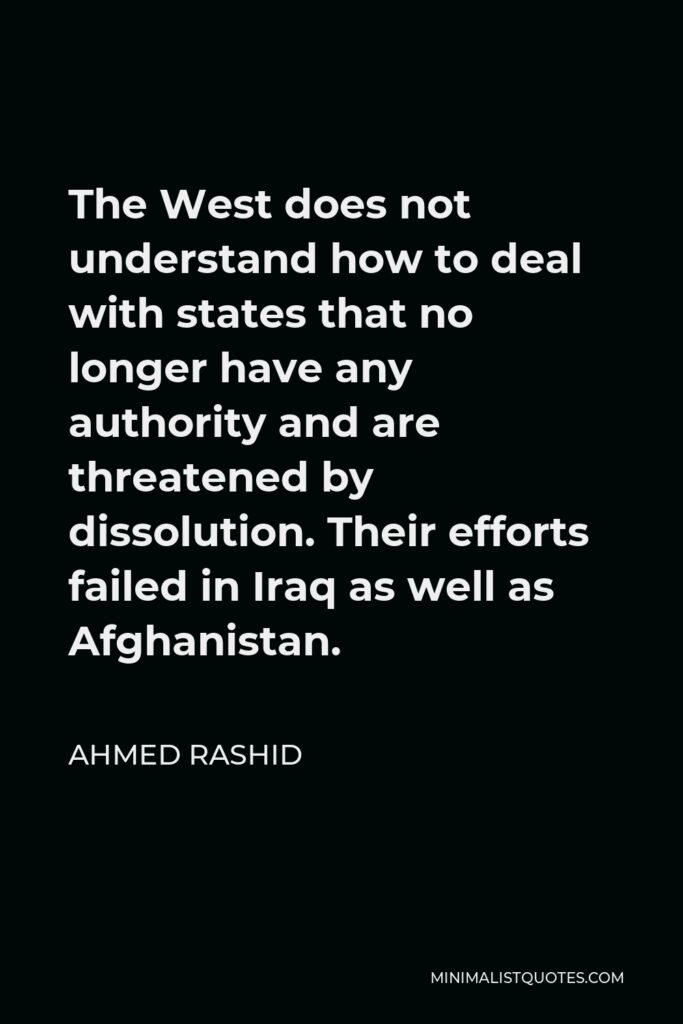

The West does not understand how to deal with states that no longer have any authority and are threatened by dissolution. Their efforts failed in Iraq as well as Afghanistan.
AHMED RASHID -





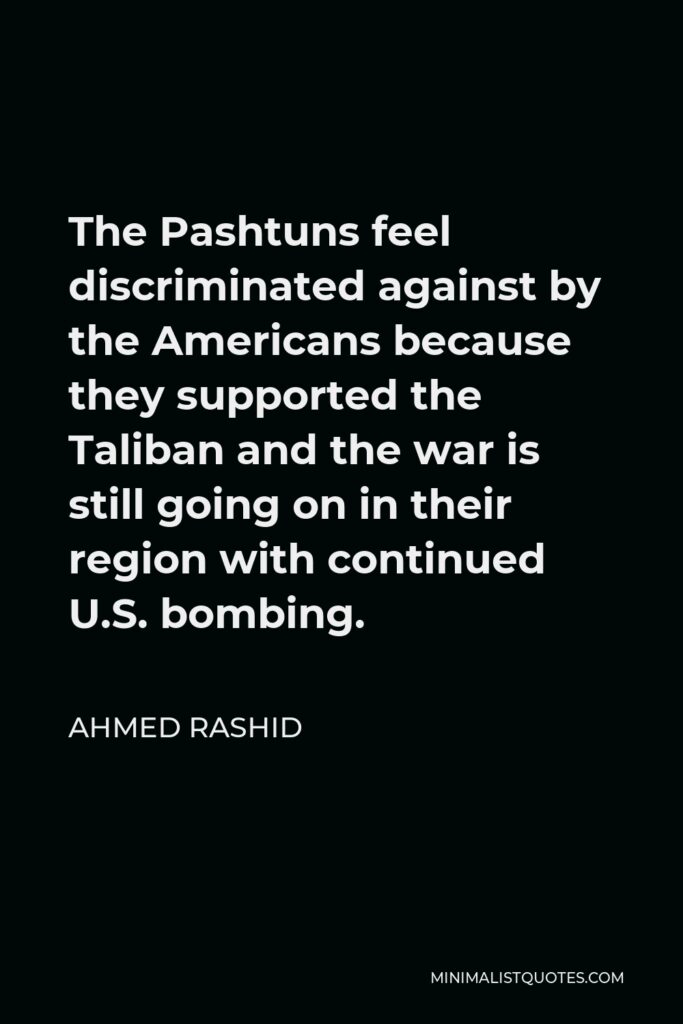

The Pashtuns feel discriminated against by the Americans because they supported the Taliban and the war is still going on in their region with continued U.S. bombing.
AHMED RASHID -





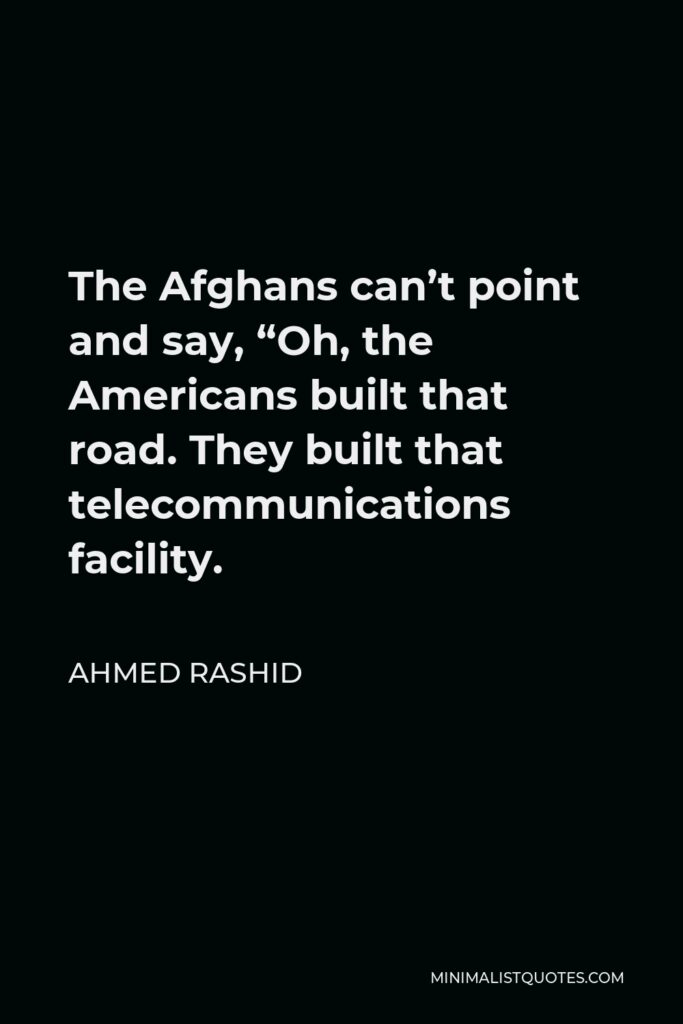

The Afghans can’t point and say, “Oh, the Americans built that road. They built that telecommunications facility.
AHMED RASHID -





![Ahmed Rashid Quote - I met a lot of the senior Taliban, and I asked them precisely [about Mullah Omar]. The most common answer was he is humble. And that was very true.](https://minimalistquotes.com/wp-content/uploads/2022/07/i-met-a-lot-of-the-senior-taliban-and-i-asked-them-683x1024.jpg)

I met a lot of the senior Taliban, and I asked them precisely [about Mullah Omar]. The most common answer was he is humble. And that was very true.
AHMED RASHID -





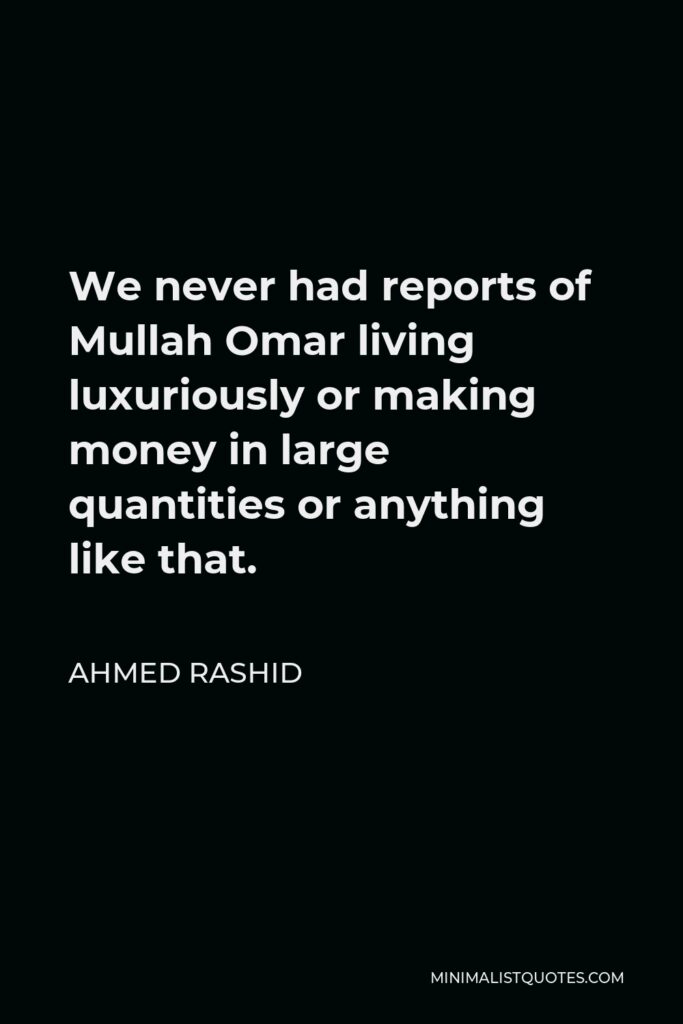

We never had reports of Mullah Omar living luxuriously or making money in large quantities or anything like that.
AHMED RASHID -





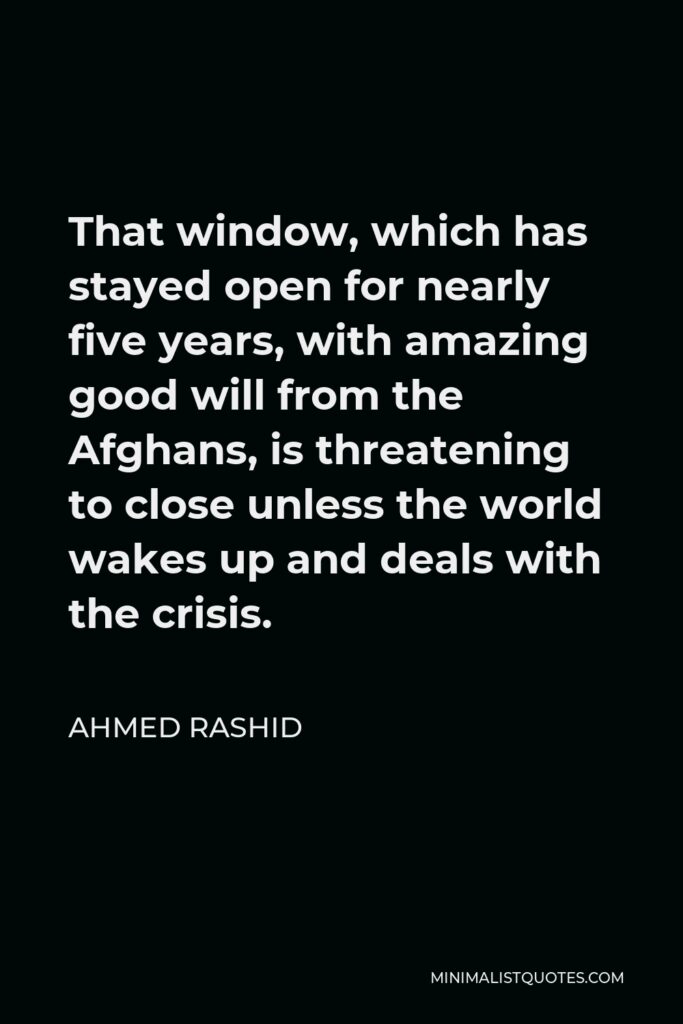

That window, which has stayed open for nearly five years, with amazing good will from the Afghans, is threatening to close unless the world wakes up and deals with the crisis.
AHMED RASHID -





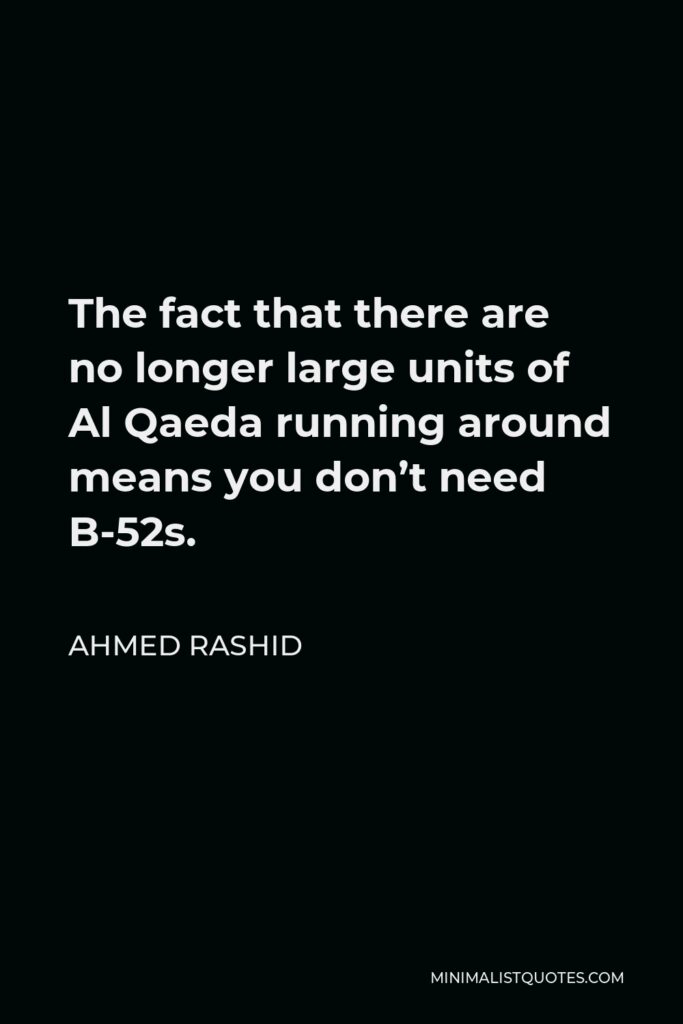

The fact that there are no longer large units of Al Qaeda running around means you don’t need B-52s.
AHMED RASHID -





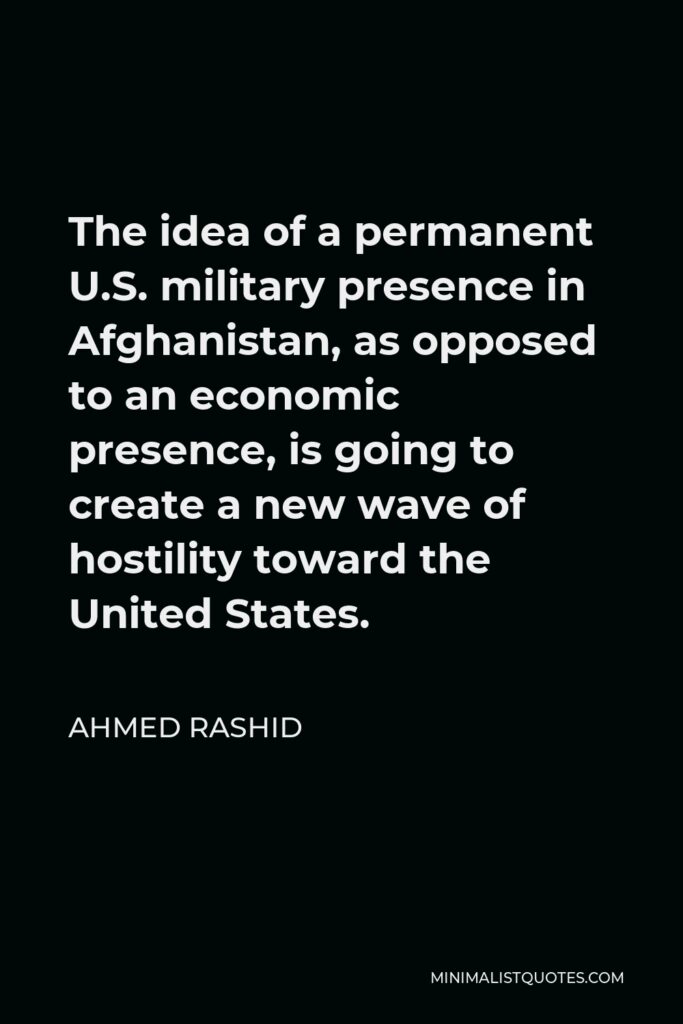

The idea of a permanent U.S. military presence in Afghanistan, as opposed to an economic presence, is going to create a new wave of hostility toward the United States.
AHMED RASHID -





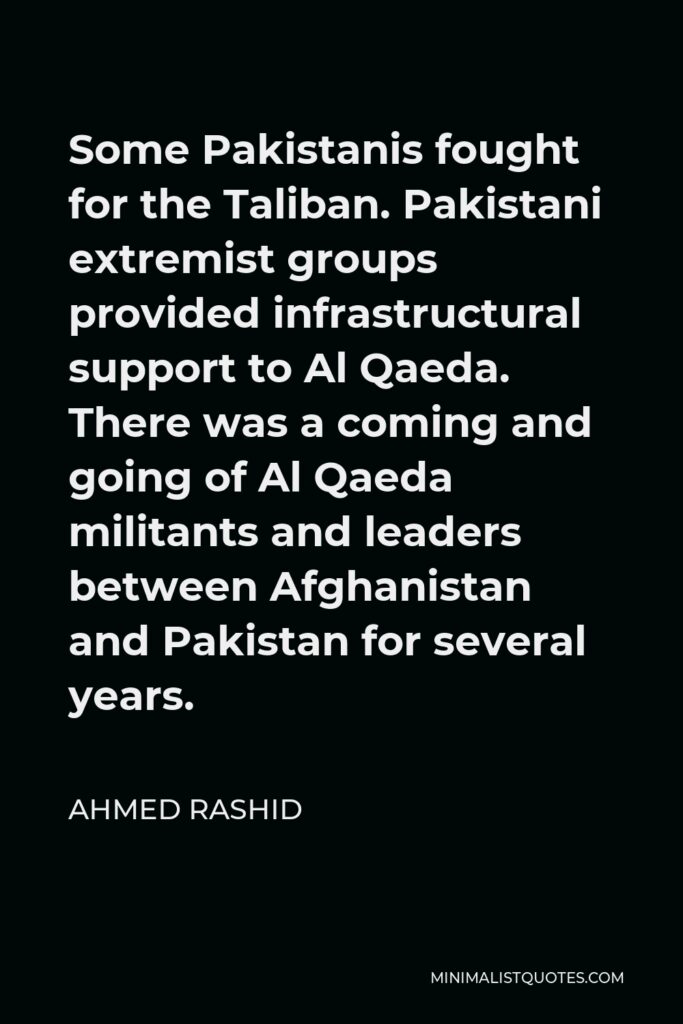

Some Pakistanis fought for the Taliban. Pakistani extremist groups provided infrastructural support to Al Qaeda. There was a coming and going of Al Qaeda militants and leaders between Afghanistan and Pakistan for several years.
AHMED RASHID -





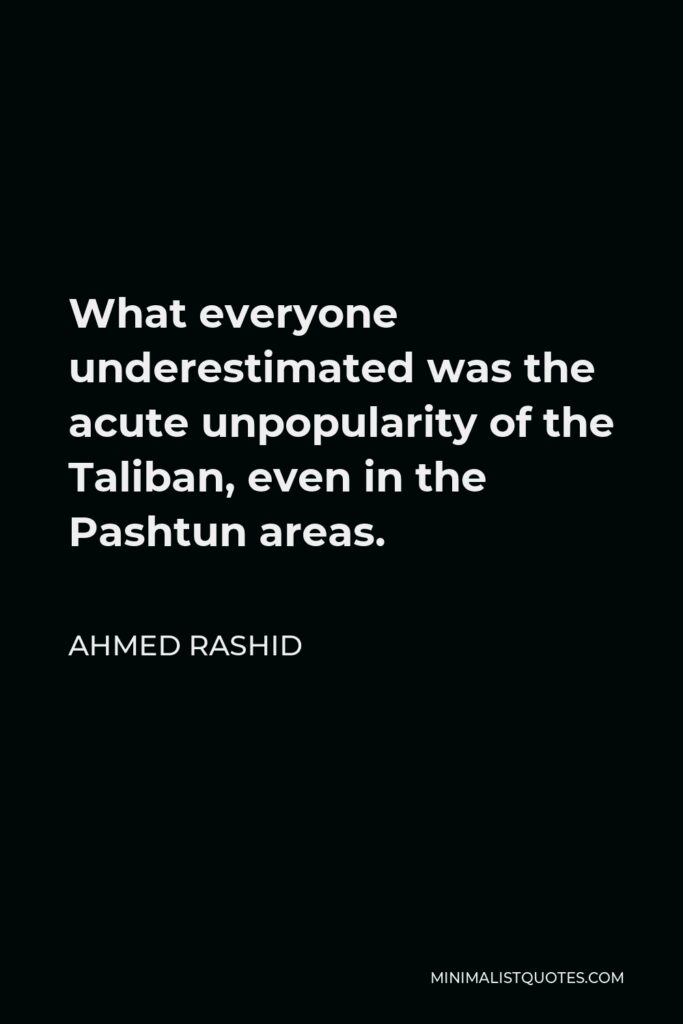

What everyone underestimated was the acute unpopularity of the Taliban, even in the Pashtun areas.
AHMED RASHID -





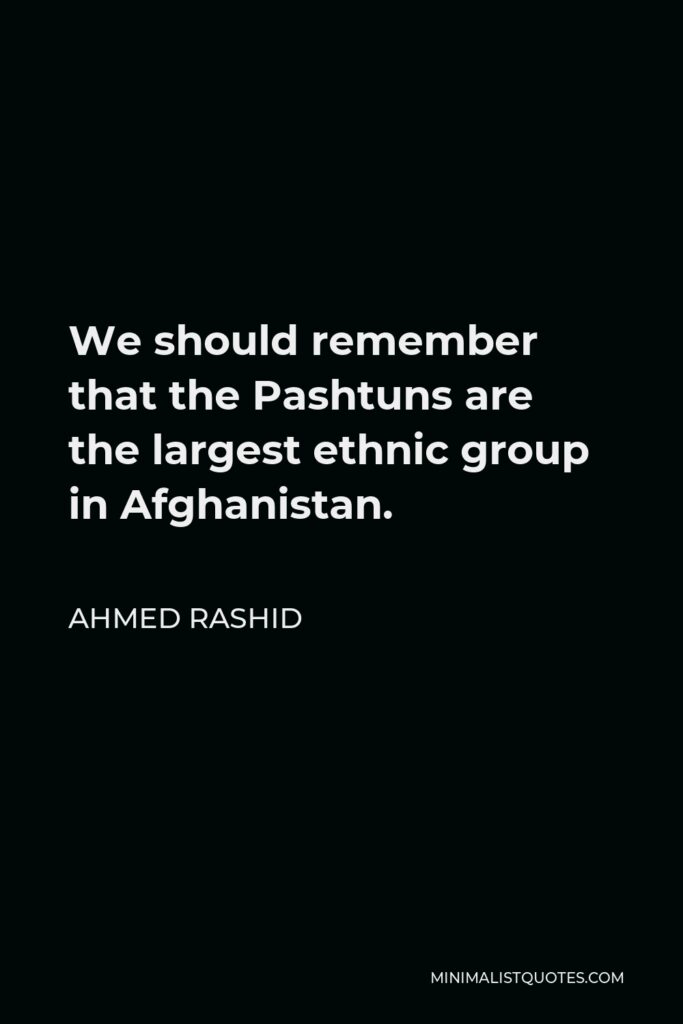

We should remember that the Pashtuns are the largest ethnic group in Afghanistan.
AHMED RASHID -





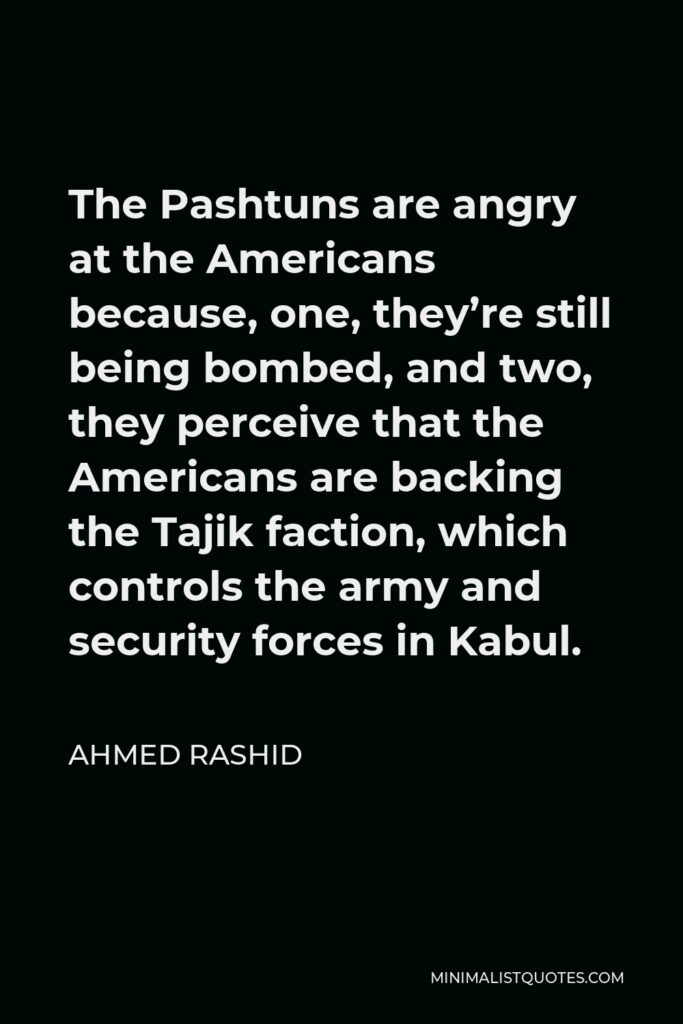

The Pashtuns are angry at the Americans because, one, they’re still being bombed, and two, they perceive that the Americans are backing the Tajik faction, which controls the army and security forces in Kabul.
AHMED RASHID -





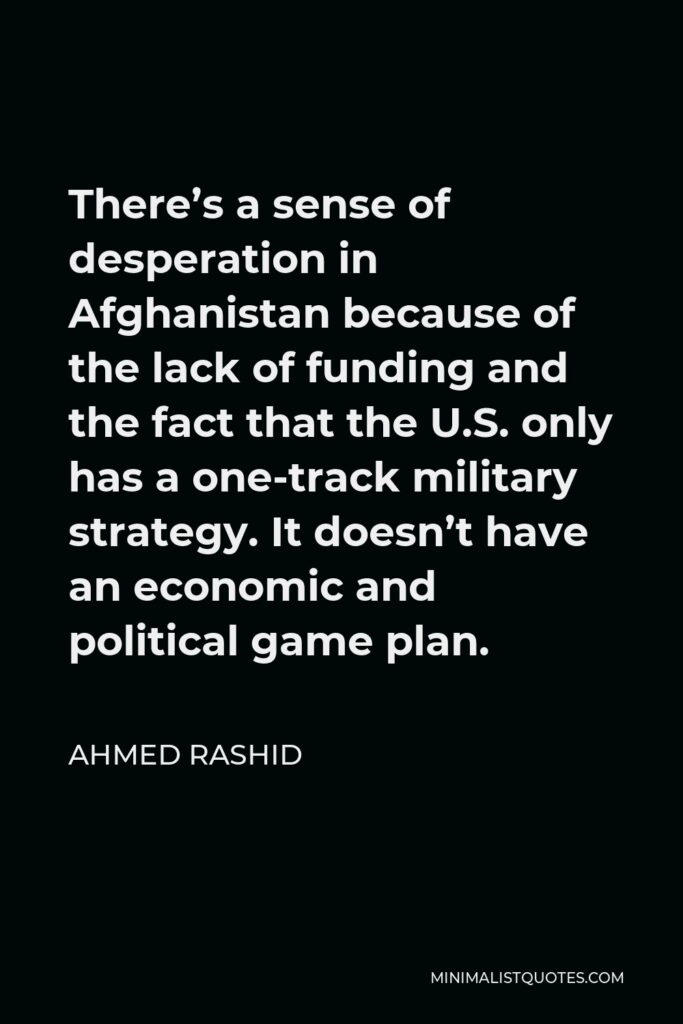

There’s a sense of desperation in Afghanistan because of the lack of funding and the fact that the U.S. only has a one-track military strategy. It doesn’t have an economic and political game plan.
AHMED RASHID -





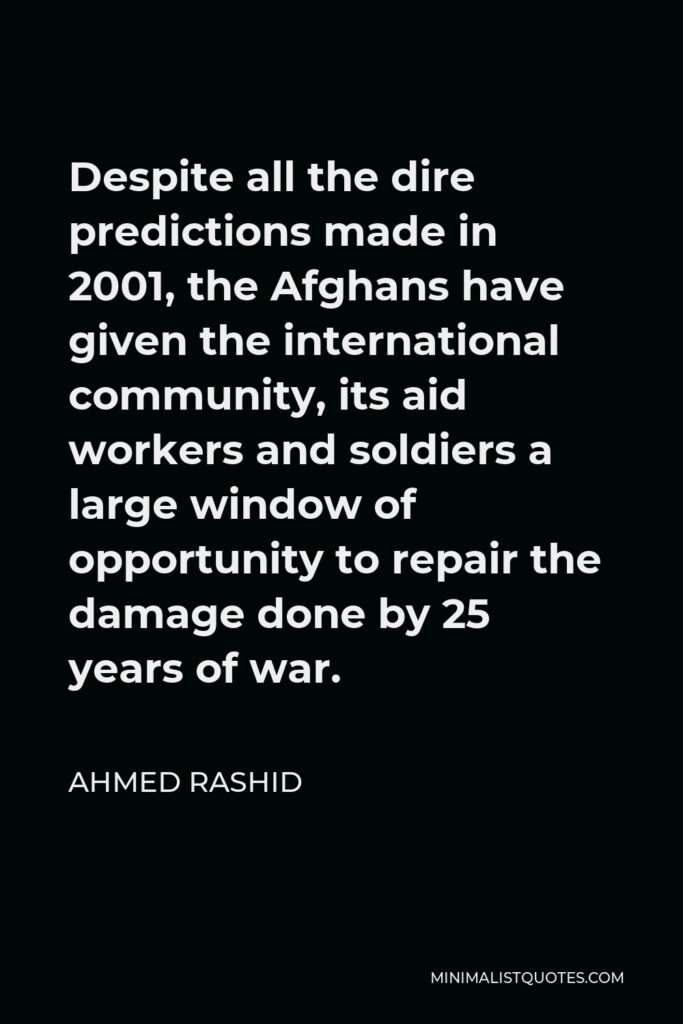

Despite all the dire predictions made in 2001, the Afghans have given the international community, its aid workers and soldiers a large window of opportunity to repair the damage done by 25 years of war.
AHMED RASHID

